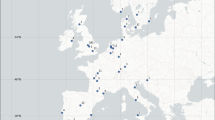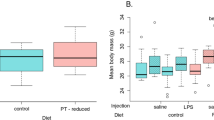Abstract
ON reading the article entitled “The Antirachitic Vitamin D” in NATURE of Dec. 31, which has just come to hand, it struck me that it might be worth while to record the following. In my student days I at one time kept various hawks and owls as pets. Many of these were taken from the nest and hand-reared, their food being in the main lights in the broadest sense including liver. The majority died of rickets before attaining maturity. Among the exceptions were two favoured young tawny owls, which were fed almost exclusively on mice and sparrows. Success with these led me to add chicken heads complete with feathers and an occasional sparrow, also feathered, to the commissariat of the others. The only essential difference between the new diet and the old was the inclusion of feathers. The birds ceased to be troubled with rickets.
This is a preview of subscription content, access via your institution
Access options
Subscribe to this journal
Receive 51 print issues and online access
$199.00 per year
only $3.90 per issue
Buy this article
- Purchase on Springer Link
- Instant access to full article PDF
Prices may be subject to local taxes which are calculated during checkout
Similar content being viewed by others
Author information
Authors and Affiliations
Rights and permissions
About this article
Cite this article
ROWAN, W. Bird Feathers and the Antirachitic Vitamin D. Nature 121, 323–324 (1928). https://doi.org/10.1038/121323b0
Issue Date:
DOI: https://doi.org/10.1038/121323b0
Comments
By submitting a comment you agree to abide by our Terms and Community Guidelines. If you find something abusive or that does not comply with our terms or guidelines please flag it as inappropriate.



